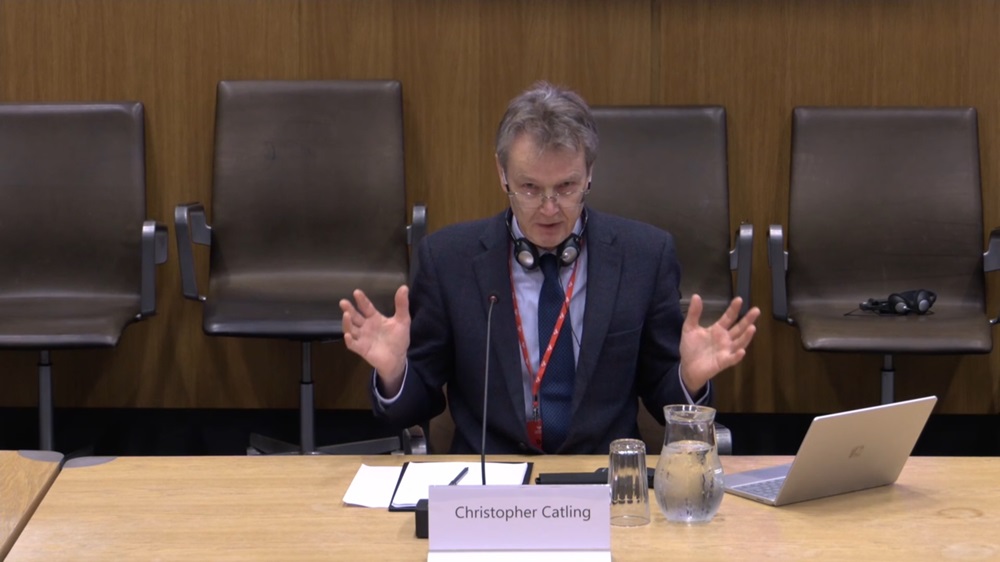Heritage body described as ‘working to the bone’

Chris Haines, ICNN Senedd reporter
A heritage body warned its workforce has almost halved over the past decade due to cuts, with some staff now “doubling up” and doing two jobs.
Christopher Catling, chief executive of the Royal Commission on the Ancient and Historical Monuments of Wales, gave evidence to the Senedd’s culture committee on October 9.
Mr Catling, who came into post nearly a decade ago in 2015, explained that the commission operates under a Royal Warrant to maintain an inventory of monuments in Wales.
He cautioned that the commission’s remit letter and key-performance indicators from the Welsh Government “don’t really address that core warrant duty”.
Mr Catling warned of an assumption that worthy social objectives can be delivered as a byproduct, saying the commission has sought external funding for this purpose.
‘Astonishing’
He said: “The social objectives are not funded by [the] Welsh Government to the same degree – quite honestly, our funding … pays for the salaries of our staff, it leaves very [little].”
Hayley Roberts, an international lawyer who is deputy chair of the Royal Commission, which received a 10.5% cut in 2024/25, agreed the situation has worsened in the past decade.
Dr Roberts pointed to the commission’s written evidence, which warned of a near 50% reduction in staff over 10 years causing substantial reductions in service delivery.
“We can’t do more with fewer staff and we can’t do the same things with less.” she said.
Mr Catling added that the commission’s costs have been rising at an “astonishing” rate, with fees for required cyber security certification jumping from £700 to £10,000.
‘Doubling up’
He told the committee: “The way we’ve coped, I’m afraid, is simply by freezing posts as people have left the commission. We have not replaced them unless their role is so absolutely fundamental to our delivery that we have to.”
Mr Catling added: “A number of our staff are now doubling up and doing two jobs.
“Our governance manager is now our HR manager even though she has none of the qualifications or skills to do that job.
“Our procurement and operations manager is doubling up as our finance manager.”
Asked about charging for pre-planning advice, Mr Catling suggested this would not be viable because the level of income raised would not pay for staff nor sustain the commission.
‘Working to the bone’
Looking to the future, he said: “It will mean change and it will mean probably doing less than we currently do but doing it differently.”
Mr Catling raised the example of the commission having one-and-a-half people to record buildings being demolished, with Wales set to lose 500 places of worship in the next decade.
Asked about cooperating with Cadw, he told the committee: “We have been continually asked to look at efficiency savings, particularly combining back-office functions.
“We have worked really hard at that and we’ve never identified a single saving. Our organisations – all of us – are working to the bone.”
Lee Waters said he struggled, from a common sense point of view, to understand that there are no savings to be made across heritage organisations.
“It’s a hard argument to sustain,” said the Labour MS for Llanelli.
‘Special pleading’
Mr Catling reiterated that efficiency savings have been exhausted, suggesting the commission is unlikely to be able to share functions with Cadw following a review.
The chief executive hit back at Mr Waters’ line of questioning, asking: “Who would you suggest we talk to? Come on, be specific.”
Mr Waters replied: “I beg your pardon. OK, maybe we need to calm down a little…. You’re special pleading the whole time.
“I don’t doubt you’re very efficient and you’re doing a tough job with limited resources – that’s frustrating, I completely understand that and I’m not questioning the value of your work.
“I’m simply challenging some of your evidence that there aren’t functions you could share.”
Asked about an extra £90,000 announced by the Welsh Government, Mr Catling said six staff have been hired for six months to work on vital projects.
He shared previous witnesses’ concerns that in-year funding is a sticking-plaster solution.
Support our Nation today
For the price of a cup of coffee a month you can help us create an independent, not-for-profit, national news service for the people of Wales, by the people of Wales.






If the current funding only covers staff wages and little else, exactly what are these employees doing all day? What is their remit, do they have offices, traveling expenses or vehicles, working from home, if there is not enough funding, what is the point of this body?